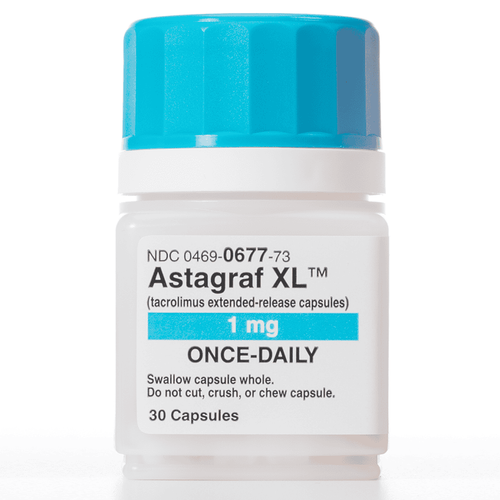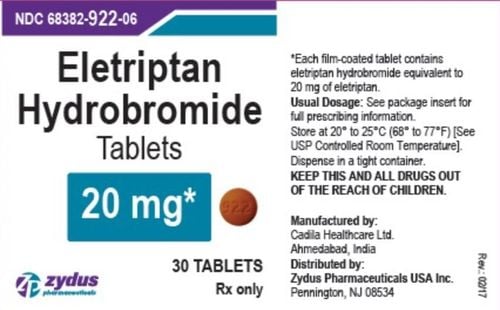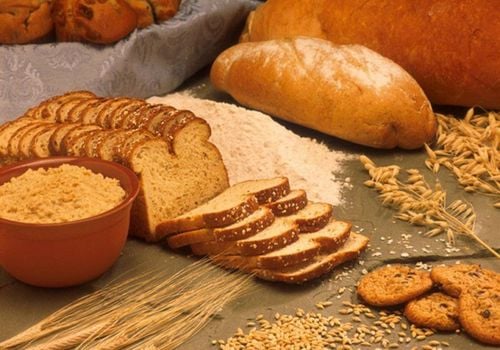This is an automatically translated article.
A healthy diet has a huge effect on our health. This is a well-balanced diet, full of essential nutrients, along with plenty of fruits and vegetables. This diet has been scientifically proven to provide many health benefits, such as a reduced risk of cancer and cardiovascular diseases. However, making major changes to your diet can sometimes seem difficult because of how long it has been around. The article below discusses 25 small changes to a healthy eating plan every day.
1. Eat slowly
Feeding speed affects food intake and is therefore a factor associated with weight gain. In fact, studies comparing eating speeds have shown that fast eaters are more likely to eat more and have a higher BMI than slow eaters. Appetite, food intake, and satiety are all controlled by hormones. Hormones tell the brain whether your body is hungry or full. However, it takes about 20 minutes for the brain to receive these messages. That's why eating more slowly can give the brain the time it needs to realize that your body is full. So, eating slowly can reduce the number of calories consumed during a meal and help you lose weight.
2. Choose whole grains instead of refined ones
A healthy diet can be made a little easier to follow by choosing whole grains over traditional refined grains. High consumption of refined grains has been linked to a number of health problems, such as diabetes. Instead, whole grains offer many health benefits, including a reduced risk of type 2 diabetes, heart disease, and cancer. They are also a good source of: fiber, B vitamins, minerals like zinc, iron, magnesium and manganese. There are many types of whole grains that can be added to a healthy diet every day such as brown rice, oats, etc. Just be sure to read food labels to make sure the products you buy are made with with whole grains, not a mixture of whole grains and refined grains.
3. Add Greek yogurt to your daily diet
The difference between Greek yogurt and regular yogurt is that it is thicker and more creamy. In this method, yogurt has been filtered from the water to remove excess whey protein. This makes them higher in fat and protein. In fact, Greek-style yogurt contains twice as much protein as regular yogurt. Eating a good source of protein can help you feel fuller for longer, which helps control appetite and reduces food intake. Plus, because it's concentrated, it contains fewer carbs and less lactose than regular yogurt. This makes Greek yogurt a suitable snack for those following a low-carb diet or who are lactose intolerant. Just replace some snacks or regular yogurts with Greek yogurt and you have a healthier diet than before.
4. Write down the food you need to buy in your notebook
Not knowing exactly what you need creates room for impulsive purchases, on the other hand hunger can cause you to subconsciously buy other less nutritious foods. That's why the best strategy is to plan ahead and write down what's required for a healthy meal plan each day.
5. Eat eggs for breakfast
Eggs are extremely healthy, they contain high quality protein and many other essential nutrients, such as choline. You will feel fuller when you eat eggs in the morning. This has been shown to cause people to consume fewer calories at later meals, so eggs can be quite helpful for weight loss. So, just replace your current breakfast with eggs and you can eat healthier.
6. Increase protein intake
Protein is considered the king of nutrients and it seems to have some superpowers. Less hunger hormone is secreted when eating a high-protein meal compared to a high-carb meal in obese individuals. Furthermore, protein helps you maintain muscle mass and may also slightly increase the number of calories burned per day. It is also important to prevent the loss of muscle mass that can occur with weight loss and aging. If you're trying to lose weight, add extra protein to each meal and snack. Good sources of protein include: dairy products, nuts, peanut butter, eggs, beans, lean meat, ... A healthy daily menu cannot be without the above foods.
7. Drink enough water
What is a healthy diet? It includes not only healthy foods and preparation methods, but also requires you to drink enough water every day. Many studies have shown that drinking water can lead to weight loss and weight maintenance, and may even slightly increase the number of calories burned per day. Studies have also shown that drinking water before a meal can reduce appetite and food intake at the next meal. That said, the most important thing is to drink water instead of other beverages.
8. Oven baking or roasting instead of frying or grilling
The way food is prepared can dramatically change its effects on health. Grilling, frying, and frying are all common methods for preparing meat and fish. However, some potentially toxic compounds are formed such as polycyclic aromatic hydrocarbons and heterocyclic amines when processed by these methods. These compounds have been linked to certain cancers and cardiovascular disease. Healthier eating methods include: steaming, boiling, steaming, salad, ...
9. Omega-3 and Vitamin D Supplement
Vitamin D is a fat-soluble vitamin that is important for bones and the normal functioning of the immune system. In fact, every cell in the body has a receptor for vitamin D. Vitamin D is found in very few foods, with fatty seafood often containing the highest amounts. Omega-3 fatty acids are another essential nutrient found in fatty seafood. These substances have many important roles in the body, including reducing inflammation, maintaining heart health and promoting brain function. If you don't eat fatty seafood regularly, consider taking a supplement. Omega-3s and vitamin D can often be found together in many supplements.10. Change to your favorite fast food restaurant
Nowadays, there are many restaurants serving healthy fast food. They can be a great substitute for your favorite burgers or pizza. Moreover, their prices are also moderate, not too expensive.
11. Try at least one new healthy food every week
Deciding what to eat today is sometimes a difficult thing, that's why many people tend to use the same dishes over and over again. Trying something new can be a fun way to add variety to your healthy diet. Try to make a healthy new dish at least once a week. You can do this by using new ingredients, herbs, and spices.
12. Eat Baked Potatoes Instead of Fries
Potatoes are easy to get bored and are a popular dish in many families. For baked potatoes, 100 grams contains 93 calories, while the same amount of french fries contains 333 calories. Furthermore, french fries often contain harmful compounds such as aldehydes and trans fats.
13. Eat vegetables first
A healthy eating menu every day cannot be without vegetables. Eating vegetables at the start of a meal can cause you to eat less of other less healthy foods in the meal as well as reduce your calorie intake, which can lead to weight loss. Plus, eating vegetables before a carb-rich meal has been shown to have beneficial effects on blood sugar. It slows the rate at which carbs are absorbed into the bloodstream and may be beneficial for both short- and long-term blood sugar control in people with diabetes.
14. Eat the whole fruit, don't force the juice to drink
Fruit is a rich source of vitamins and minerals. Studies have concluded that fruit consumption reduces the risk of cardiovascular disease, type 2 diabetes, and cancer. Fruits contain fiber and various plant compounds, their natural sugars are usually digested very slowly and do not cause blood sugar spikes. However, fruit juice did not have the same effect. Many fruit juices are not even made from real fruit, but rather concentrated juices and sugar. Even real fruit juices lack more fiber than whole fruit provides.
15. Cook at home more often
Is a healthy and economical way of eating. Try to make it a habit to cook at home most evenings instead of eating out. When you cook for yourself, you'll know exactly what's in it. You won't have to wonder about any unhealthy or high-calorie ingredients. Cooking at home helps you reduce your risk of obesity and improve the quality of your meals.
16. Exercise more
Improved mood, as well as reduced feelings of depression, anxiety and stress are benefits of exercise. These are the feelings that are most likely to contribute to binge eating habits. At least 30 minutes of exercise a day will help you lead a healthier life.
17. Replace sugary drinks with carbonated water
Sugary drinks contain a lot of added sugar, which has been linked to many diseases, including heart disease, obesity, and type 2 diabetes. Plus, the added sugars found in these drinks don't affect cravings, so you're not making up for the calories you've taken in by eating less. Try replacing sugary drinks with an unsweetened one or just opt for water. Doing so will eliminate unhealthy calories and reduce excess sugar entering the body.
18. Stay away from "diet" foods
These foods are significantly reduced in fat and are often labeled “fat-free”, “low fat”, “reduced fat” or “low calorie”. However, they are added to other ingredients to compensate for the flavor and texture loss due to fat. So it turns out that diet foods contain more sugar and calories than regular foods. Instead of using these diet foods, add whole foods like fruits and vegetables to your daily healthy eating menu.
19. Have a good night's sleep
Lack of sleep increases appetite, which leads to increased calorie intake and weight gain. In fact, people who get too little sleep tend to weigh significantly more than those who get enough sleep. Sleep deprivation also negatively affects concentration, productivity, athletic performance, glucose metabolism, and immune function. Furthermore, it increases the risk of several diseases, including inflammation and heart disease.
20. Eat fresh fruit instead of dried fruit
Fruits are very good for health because they contain many beneficial nutrients. You can buy fruit in frozen, fresh, and dried forms. While they're both healthy, dried fruit is a much better source of calories and sugar. Dry varieties are also often covered with sugar, which further increases the sugar content. You can eat healthier simply by choosing fresh, low-sugar and lower-calorie varieties.
21. Popcorn is better than french fries
Popcorn is a whole grain that is packed with nutrients and fiber. A 100-gram serving of popcorn contains 387 calories and 15 grams of fiber, while the same amount of French fries contains 532 calories and just 3 grams of fiber. Diets rich in whole grains have been linked to many health benefits, such as a reduced risk of inflammation and heart disease.
22. Use healthier oils
Processed seed and vegetable oils have become an indispensable food in families. Soybean, sunflower and canola oils are high in omega-6 fatty acids but low in heart-healthy omega-3s. Some studies suggest that a high omega-6 to omega-3 ratio can lead to inflammation and is linked to cardiovascular disease, cancer, osteoporosis, and immune disorders. Feel free to use other alternative oils for a healthier diet like extra virgin olive oil, avocado oil, ...
23. Eat with smaller dishes
The size of the eating utensils can affect the amount of food eaten. Eating with a large plate can make your portion look smaller, while eating with a small plate can make it look bigger. According to one study, eating with a smaller plate is associated with increased feelings of fullness and decreased energy intake. Additionally, eating with smaller eating utensils can trick your brain into thinking you're eating more, making you less likely to overeat.
24. Keep sauces separate when eating salads
Not all salads are healthy. In fact, some salads are marinated with high-calorie dressings, which can make the salad even higher in calories than other items on the menu. Asking for a separate sauce makes it easy to control portion sizes and calories.
25. Drink black coffee
In fact, coffee is a source of antioxidants and has been linked to many health benefits, such as a reduced risk of type 2 diabetes, mental decline, and liver disease. However, many commercial coffees contain many additional ingredients such as sugar, syrup, cream, and sweeteners. Drinking these types of coffee does not provide any health benefits. Instead, try drinking black coffee or just add a small amount of milk or cream instead of sugar.
Above are 25 healthy eating tips that anyone can apply at home to help improve health status and limit diseases such as obesity, heart disease, diabetes...
Please dial HOTLINE for more information or register for an appointment HERE. Download MyVinmec app to make appointments faster and to manage your bookings easily.
Reference source: healthline.com












